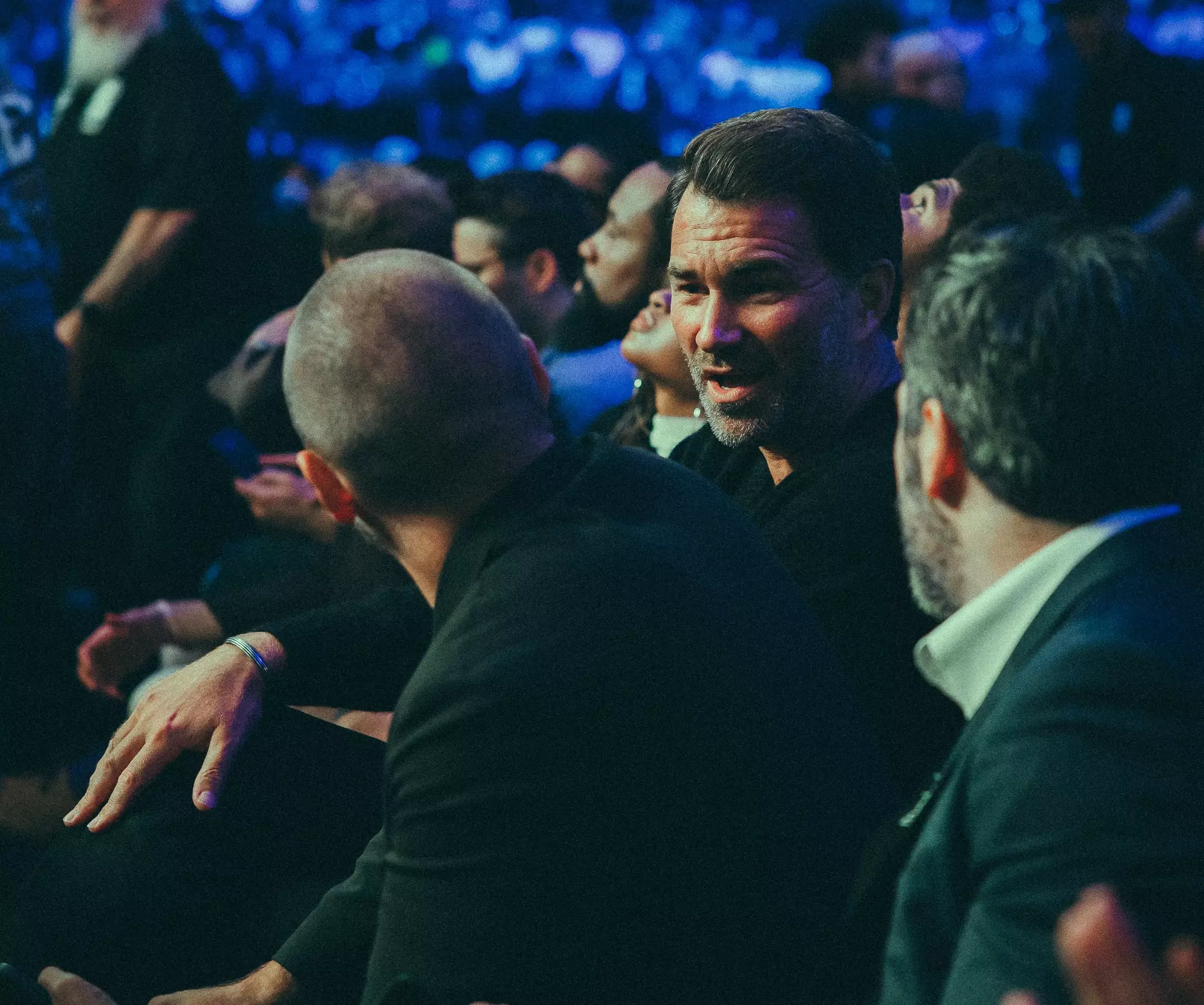The Dilemma of Blair Cobbs: A Fight for Redemption in the Boxing Ring
When it comes to professional boxing, the stakes are incredibly high. Every punch can change a fighter’s future, and that’s especially true for those trying to reclaim lost opportunities. One such fighter is Blair Cobbs, whose recent encounter with promoter Eddie Hearn has not only highlighted his personal journey but also the complexities of the boxing world. Just last Saturday night, after IBF welterweight champion Jaron ‘Boots’ Ennis secured a unanimous decision win over Karen Chukhadzhian, Cobbs took a bold step at the post-fight press conference.
At 34 years old, with a professional record of 17 wins, 1 loss, and 1 draw (10 KOs), Blair Cobbs stands at a critical juncture in his career. Instead of quietly fading into the background, he seized the moment to propose himself as Ennis’s next opponent—an ambitious move that mingles desire with necessity. However, Eddie Hearn’s cold response underscored the brutal realities of boxing promotion. Hearn redirected Cobbs to a more pressing challenge: fighting Chukhadzhian himself, who boasts an impressive record of 24 wins and 3 losses (13 KOs).
Key Takeaways
- Blair Cobbs is at a crucial point in his boxing career at age 34.
- Facing Karen Chukhadzhian poses both risks and significant opportunities.
- A victory could lead to major fights against top contenders like Jaron Ennis or Conor Benn.
This suggestion isn’t just about matchmaking; it’s a calculated risk for Cobbs. The idea of losing to Chukhadzhian looms large over him. Should he accept this fight and win, it could unlock doors to life-changing bouts against Ennis or even Conor Benn. The lure of such a fight, particularly with its potential financial rewards, weighs heavily on Cobbs as he dreams of escaping the grueling grind of lower-tier matches.

Navigating the Complex World of Boxing
The drama in boxing doesn’t end when fighters leave the ring; it extends into their careers as they balance skill, luck, and opportunity. For Cobbs, choosing whether or not to fight Chukhadzhian involves significant risks. At nearly 35 years old, time is no longer on his side. Unlike younger fighters, each bout could be momentous—a springboard to greater heights or a setback that further entrenches him in mediocrity.
A loss to Chukhadzhian wouldn’t just be personal; it would place Cobbs at the mercy of promoters and matchmakers who might question his status as a contender. His victory over Adrien Broner remains a career highlight but is overshadowed by less memorable fights. The memory of his recent ninth-round knockout defeat by Alexis Rocha lingers as a reminder that a single loss can reshape public perception and erase years of hard work.

The Weight of Decision-Making
Eddie Hearn’s proposition carries undeniable weight. He offered Cobbs a binary choice: accepting the fight with Chukhadzhian could elevate his status while serving as a lifeline in an unforgiving sport. Opportunities in boxing are fleeting, and ignoring Hearn’s suggestion seems unwise. The allure of what might be awaits—a successful outcome could lead to a major fight in Philadelphia and pave the way for dreams like owning that dream home in The Ridges, Las Vegas.
Final Thoughts
Cobbs finds himself at a pivotal crossroads where his future trajectory depends on confronting fears and seizing what might be one of his last significant opportunities for success in boxing. He must weigh immediate comfort against the risks involved in pursuing a fight that could propel him to contender status if successful. In boxing, it’s not just about winning; it’s about timing, strategy, and knowing when to take calculated chances.
The decision looms large for Blair Cobbs; it may very well dictate whether he experiences merely fleeting moments in boxing or achieves his dreams. No matter what path he chooses, one thing is certain: in boxing, fortune favors those who dare to take bold actions.
boxing Blair Cobbs redemption career decisions


Leave a Reply